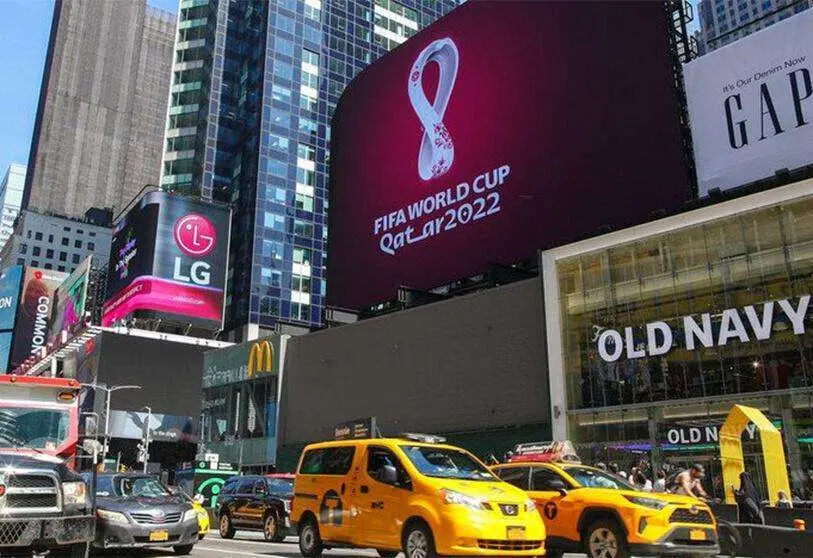From Russia to Qatar: the double standards trying to ruin football

On 2 December 2010, the venues for the 2018 and 2022 World Cups were chosen. It was the first time that FIFA had made such a long-term decision and doubts were only raised about Qatar. Russia, a regular player in sport, politics and the world economy, was hardly mentioned and did not arouse any misgivings.
Regardless of what influenced Platini and Blatter's decision and the investigations into an alleged corruption scheme to get Qatar to host 2022, the complaints about the country were all over the place.
Curiously, there were no attacks on Russia as host of the 2018 World Cup. Vladimir Putin ordered the Russian army to invade Crimea in February 2014, four years early and with plenty of room for exemplary sanctions such as those now imposed on the national team and its football teams.
In April 2014, the Dombash war began between Russia and Ukraine over these territories in the east of the country, on the border with Russia. The figures for that war were 14,000 dead, 30,000 wounded, 1.4 million displaced and 3.4 million people in need of humanitarian aid, according to the UN.
That war was kept in the background, nobody talked about it and football was not used to attack Russia. The years passed and the World Cup was held in style from 14 June to 15 July. It was there that Luis Rubiales embarrassed Spain by sacking Lopetegui a day before Spain's debut and putting in his place a clueless Fernando Hierro. Spain went home in the last 16 to Russia, although they won in possession, and France took the World Cup after an entertaining final against Croatia that ended 4-2 at Moscow's Luzhniki stadium.
With all those dead on Russia's back, Niki Jam and Will Smith had no objection to singing the official theme song "Live It Up". Robbie Williams, who said he was "very happy and excited to be back in Russia for such a unique performance", was also there.
Will Smith, Era Istrefi and Nicky Jam were also at the closing ceremony before the match between France and Croatia. There was also no boycott for the private sector to contribute more than €2 billion to Russia's coffers.

In February 2022 everything changed. Russia's new invasion of Ukraine did push Europe and the United States to isolate Russia and to demand for Russia, national teams, football teams and businessmen a raft of sanctions that, in some cases such as the confiscation of yachts, are a problem for the public coffers and could even be a criminal offence.
Qatar has not invaded another country, the problem is its understanding of freedoms. Far from what they are for Westerners. Women and homosexuals are excluded from society and the law condemns practices that are outdated in other parts of the world.
Luis Rubiales' RFEF played with double standards by trying to whitewash Saudi Arabia before holding various Super Cups there. Acting as a saviour did not work, football was not going to give women's rights back, but Spain decided to go to the call of money.
These are their customs, as some politicians in Spain would say about foreigners when they break the law. In Qatar there are also customs that, if the most LGTBI England or Denmark's sports brand doesn't like them, they can choose not to play the tournament rather than provoke confrontation with their whining.
Blatter has confessed 12 years later that choosing Qatar was a mistake. They have had time to correct it, they have not done so and now many teams decide to pull out the double standard to play the World Cup, but attack the country that hosts them.








